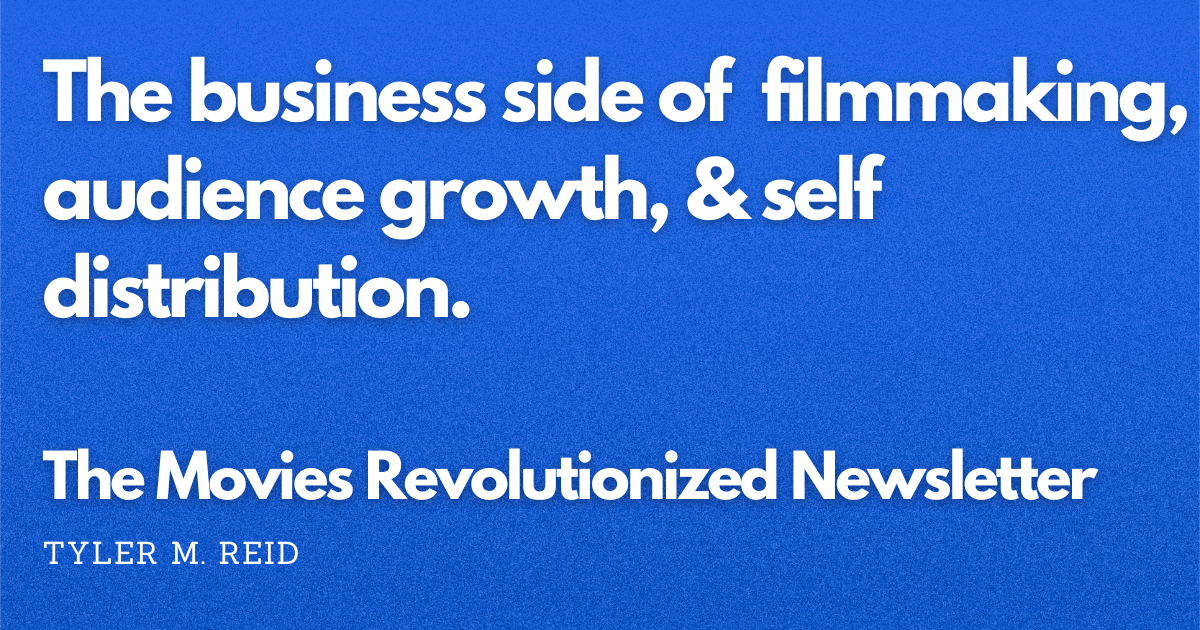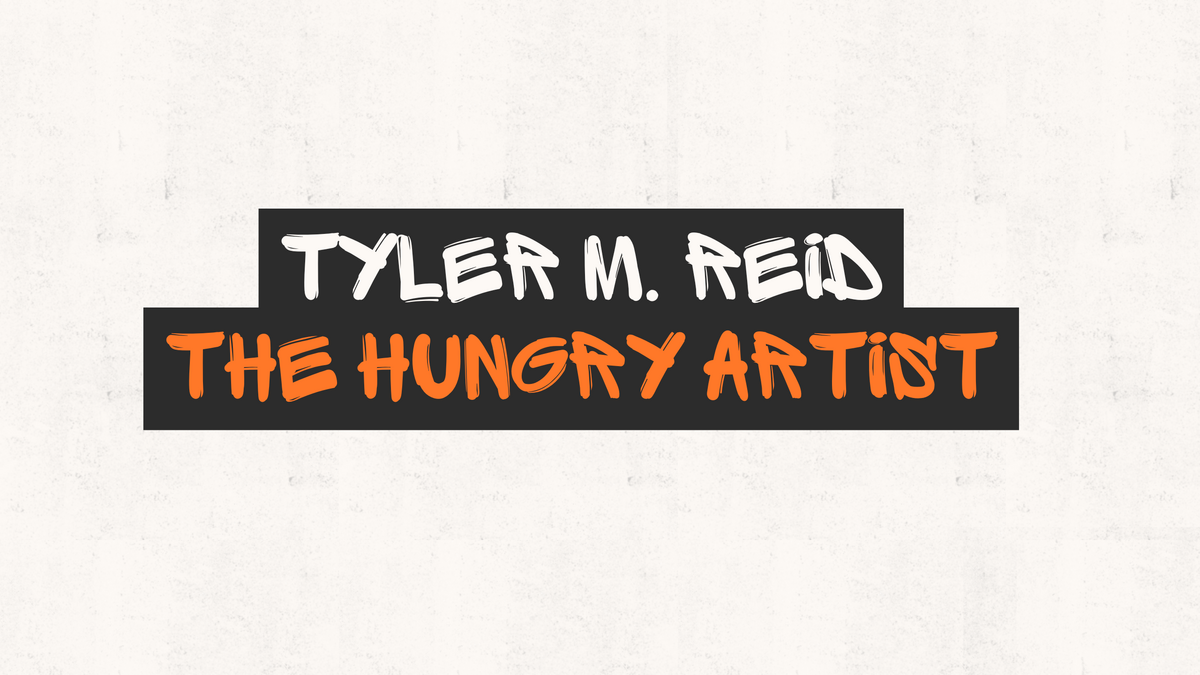The hamster wheel of others
Let me tell you about a conversation I had recently with a filmmaker I know. For three years, they've been "developing" the same project. Three years of perfecting the script, trying to get meetings with executives, chasing down investors. Know what they don't have after three years? A film. This isn’t a judgement, these things happen. Like any producer will tell you, they have been attached to far more projects that never got made than to projects that have gotten made. At any one time a producer could be in development on a dozen projects, just hoping one gets produced.
That’s how producers already established in the industry do it, push hard to get their projects made.
What about all of the filmmakers that do not have any connections to the industry. They try to doo what the person above has been doing, setting up meetings, doing pitches, and the project is still just an “idea”…yes it has a script and deck, but still it’s not a film. They are waiting for the “permission” of others to get their film made. Just going around a hamster wheel until someone tells them they can hop off and make their film for them.
Think about this - in the time most filmmakers spend waiting for permission to make their film, they could have already made something. Maybe not the $10 million version they dreamed of, but something real that audiences can watch.
The permission trap
This is something you may be getting wrong, and it’s not just you it’s other filmmakers too, they think they need certain things before they can make their film:
- A perfect script
- A big budget
- A large crew
- Expensive equipment
- Industry connections
But let me ask you something, when was the last time you left a movie theater and thought "Well, the story wasn't good, but at least they had a big crew... I give it 7 out of 10"?
Never, right?
Audiences don't care about your budget. They don't care about your crew size. They don't care what camera you used. They care about one thing: Did the story make them feel something?
The tools you already have
What do you actually need to make a film? That iPhone in your pocket? It's a better camera than what many indie filmmakers had access to just ten years ago. But let's say you want something more professional.
Here's what my crew and I did: We rented equipment for specific shooting blocks. For example, on many of my first projects, we:
- Rented a DSLR package for $200/weekend
- Got a basic lighting kit for $150/weekend
- Borrowed sound equipment from a friend
- Used free locations we scouted ourselves
Total production equipment cost for a three-day shoot? Less than $500. We are talking about good quality equipment, and by the way, this was over a decade a go. The DSLR was a canon 7d or 5d. Cameras of higher quality can still be rented for a weekend at the same cost.
That’s the other beauty here, you don’t have to actually own anything. Chances are you own a phone and one a computer. Nearly every single piece of software is now subscription based. You can rent it for a month.
You can rent cameras and lenses online, to be shipped to you, with the packaging to ship it back. For all of those filmmakers that don’t have equipment rental facilities close by, can still rent equipment.
Finding your crew
But what about crew. You may not realize it, there are incredibly talented people out there looking for exciting projects to work on, even in a small city, if you live in a small city. If you think that’s not possible because barely any films or tv are filmed in your city, then don’t like at film projects but other video projects. Commercials are filmed in your city. Many production companies are just a handful of people that make content for local companies. It’s also not uncommon those people had dreams of making films one day. The added benefit, is that they may be so interested in your project, they offer some of their equipment for free or very low cost.
So how do you find this local crew.
- Join local film Facebook groups
- Network at film festivals (even small ones, even local ones)
- Reach out to film school graduates
- Connect with other indie filmmakers
The key is being upfront about what you can offer. Maybe you can't pay full rates, but you can offer:
- Credit and IMDB listing
- Food and transportation
- Revenue sharing (shared equity can mean a lot)
- Future work opportunities
- Creative input on the project
Send the film into the universe
The distribution landscape has changed dramatically. You don't need a big distributor anymore. Platforms like Indieflix, Fandor, and Cineverse let you put your film out there for free.
But here's where it gets interesting, social media has also changed everything. You can build an audience while you're making your film. Share behind-the-scenes content. Create anticipation. Build a community.
The 1,000 true fans theory
Kevin Kelly wrote about this concept in 2008, but it's more relevant now than ever. You don't need millions of casual viewers. You need 1,000 true fans who love what you do.
This is how you go about thinking about it.
- 1,000 people paying $10/month for your content = $120,000/year
- 1,000 people buying your film and merchandise = Sustainable career
- 1,000 people sharing your work = Organic growth
Yes, 1,000 people is a lot. It’s not just focus on one singular revenue stream, you want to look at as many ways as possible for your film to earn you money. Then the goal is to get hundreds of people to those different areas as opposed to thinking about getting 1,000 people to one area. Be a film from the 90’s. It went from theater, to VHS/DVD, to television, and so on. Then products attached to the film, like posters and other merchandise. That’s how you should think about your film, what are all the different ways you can distribute your film and monetize it, just a little along each of those paths. Touring your film is a great way to earn revenue and sell merchandise.
Get started now
Let’s just dive into an action plan:
1. Choose a story you can tell with what you have access to
2. Write a script that works with limited locations and cast
3. Make a realistic budget based on rentals and favors
4. Find 2-3 key crew members who believe in the project
5. Set a shooting date (no more than 2 months away)
6. Start documenting your journey on social media
7. Just. Start. Filming.
Yes, your first film might not be perfect. Yes, you might have to make compromises. Yes, you'll probably make mistakes.
But here's what matters more:
- You'll have made something real
- You'll have learned valuable lessons
- You'll have started building an audience
- You'll have taken action while others are still planning
Remember This
The tools don't matter.
The budget doesn't matter.
Only the story matters.
Stop waiting for permission.
Stop planning.
Start filming.
Because the truth is, no one is going to give you permission to make your film. The only permission you need is your own.
Ready to get started? Pick up your phone right now and film something. Anything. Because that's how it begins - with action.
There are two ways I can help you.
I give away a free bundle with example pitches, templates, and interactive budgets that you can grab right here.
If you are on your journey to make your first short film, documentary, or even micro budget feature, this course is designed to help you find money, grow your audience, and earn an income.


